As Nigeria experiences a sizable hike in the price of cowpea, scientists say broad cultivation of genetically modified (GM) varieties could help keep the staple food crop affordable to the poor.
GM cowpea could make the popular plant-based protein source, commonly known as beans, more available and affordable because the crop can resist attacks by the destructive Maruca pod borer pests, which decrease yields, said Dr. Mohammed Lawan Umar, head of the department of plant science at the Institute for Agricultural Research at the Ahmadou Bello University.
Umar noted that farmers growing GM cowpea can achieve yields that are three-to-four times higher than conventional varieties.
He lamented that the price of beans has risen dramatically over the last few years, putting the crop out of reach for some sections of the populace. Cowpea is often known as the poor man’s meat because of its high protein content.
“I remember when we did the cowpea upscaling in Nigeria (in) 2016, 17, 18… At that time, I think the highest price was 20,000 Naira (US$50) per bag. Now it’s 60,000 Naira ($150) this year,” he observed.
If more farmers get access to the recently approved GM cowpea seeds, the staple could become more affordable, Umar said. The GM variety is also referred to as pod borer- resistant (PBR) cowpea.
Some farmers have complained about low yields as a result of Maruca pest attacks, which have the potential to cause 80-to-100 percent yield loss — even with frequent pesticide applications.
“The Maruca business is a set-back in our harvesting,” Ahiaba M. Sylvanus, a 63-year-old farmer, told Alliance for Science. “Some seeds are being damaged. At the end of the day, if you trade, the value is not there, and it cost a lot of losses in the market when you are selling. At the end of the day…one-third is gone as a result of damage by the Maruca attack.”
Built-in pest resistance boost yields
Farmers who grow GM cowpea will no longer share Sylvanus’ experience because of the crop’s inherent ability to resist the pest, said Dr. Rose Gidado, deputy director of the National Biotechnology Development Authority. This will translate into higher yields, which will eventually make the crop more affordable, she said.
“That protection that the [Bt] gene gives to the crop…prevents it from being destroyed. And so, it translates into high yield,” Gidado explained.
Nigeria is the world’s largest producer and consumer of cowpea. It annually consumes more than 3.6 million tonnes of cowpea and must import about 500,000 tonnes to meet demand. Cowpea is a popular protein-rich staple that is usually cooked and eaten with other carbohydrate sources, including rice. It is also used in making “akara,” a popular breakfast meal.
“One of the reasons for the shortfall, in our understanding as scientists, is insect pest constraint, which reduces cowpea yield on our farmers’ fields, resulting in an average yield of less that 1 tonne per hecatare,” said Prof. Mohammed Ishiyaku, executive director of the Institute for Agricultural Research and lead developer of the GM cowpea.
Skyrocketing prices hurt poor
The price of cowpea and other food crops has recently shot up drastically, according to data published in October 2021 on the Beta Prices website. “The current price of a 50kg bag of beans would go between 40,000 ($100) Naira to 50,000 Naira ($120). Not only the price of beans, according to the National Bureau of Statistics, the price of food commodities has also risen astronomically by 27 percent since February 2021,” the platform said.
A survey by the Premium Times in Nigeria, published in July 2021, revealed the price of cowpea has shot up by 159.3 percent over last year. “The prices of essential cowpeas such as beans and soybeans increased by 159.3 and 76.7 percent (respectively), while prices of groundnuts rose by 63.64 percent from what they were being sold for last year,” the newspaper said.
On the streets of Nigeria, similar complaints have been raised. Saratu Bolakpo Jasmine, a trader in the capital city Abuja, told the Alliance for Science that bean prices had nearly doubled.
Victor Andy, another Abuja resident, told the Alliance that in the past, a serving of beans priced at 150 Naira was so large it couldn’t be finished in one sitting. “But now, you buy 200 (Naira), you’ll not even be satisfied. … So now beans is higher than before.”
“I remember last year for my village, the beans came out, it came out as 150–170 (Naira). I’m surprised beans [now] go for 800 (Naira). So, we have nothing to do than to be managing like that to sustain ourselves,” he said.
Political insecurity and unrest in large areas of northern Nigeria, poor weather and pest attacks have been identified as some of the challenges hindering efforts to make cowpea affordable, accessible and available to all.
Unintended benefits
Gidado says the GM cowpea variety is not only helping to tackle the pest attack problem but proving to be climate-resilient. That resiliency is inherent in the local cowpea variety into which the Bt pest-resistance gene was introduced.
“There are other unintended benefits that actually come along with this, because when demonstration plots were established on farmers’ fields last year, and I visited some of them, we discovered that the cowpea matures earlier than the local varieties. And that the cowpeas are resilient, highly resilient. And they’re climate-smart. They are early maturing, even if there’s early cessation of rain,” she noted.
Mallam Yakubu Adama, an extension agent at Zaria, said pest attacks and poor rains in 2020 caused the recent price increase for beans. But even in those conditions, the GM cowpea performed well while other varieties struggled, he noted.
“The rain stopped Oct. 8 here in Zaria last year. The rain stopped earlier than previous years. And the absence of dew made the cowpea plants not do well. If you observe, this year cowpea was sold at 40 something thousand (Naira) per bag. As we speak, just yesterday, cowpea was sold at 56,000 Naira per bag. But the Bt cowpea, in spite of that challenge, did well,” he observed.
More farmers growing GM cowpea will translate into greater affordability and availability of beans for people across the country who consume it as their main source of protein, Adama said.






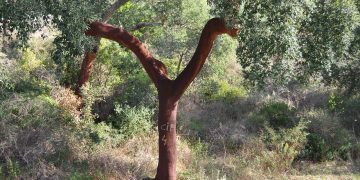
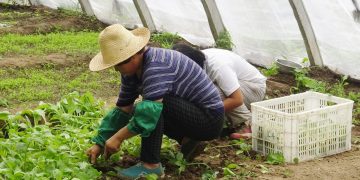













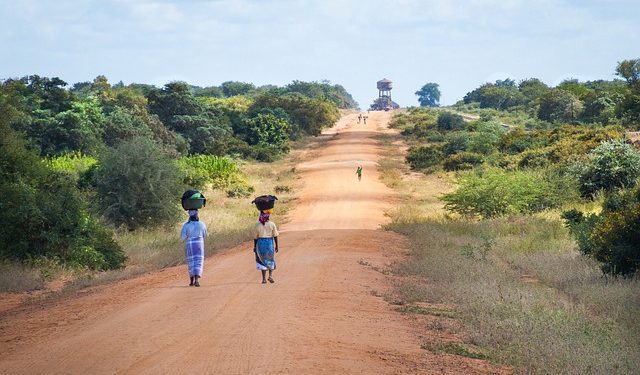
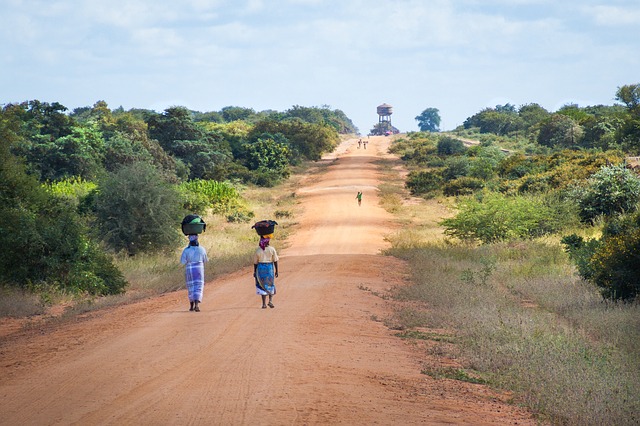






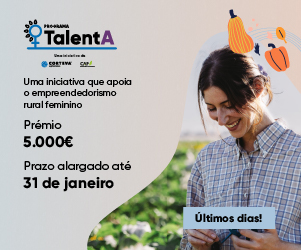

















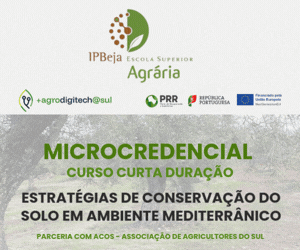








Discussão sobre este post